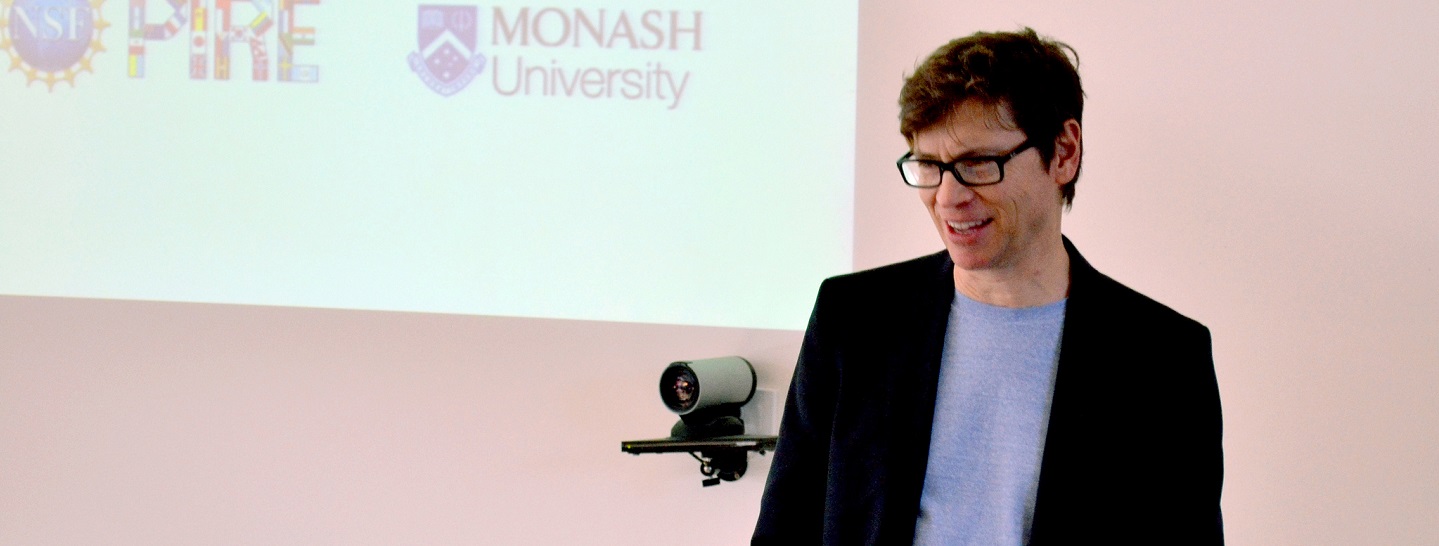
Stanley Grant, Ph.D.
Water-PIRE Principal Investigator (PI) - Department of Civil and Environmental Engineering, UCI (USA)
Dr. Stanley Grant is a Professor in the Departments of Civil and Environmental Engineering (primary) and Chemical Engineering and Materials Science (courtesy) at the University of California, Irvine. Dr. Grant is also a Visiting Chair of Hydrology and Water Resources in the Department of Infrastructure Engineering at the University of Melbourne (Australia). Dr. Grant received his B.S. with distinction in Geology from Stanford University in 1985; and his M.S. and Ph.D. in Environmental Engineering Science (with a minor in Applied Biology) in 1989 and 1992, respectively, from the California Institute of Technology. His professional interests include drinking water supply and water quality, coastal water quality, environmental dispersion of pathogens, and fate and transport modeling.
Dr. Grant’s journal articles have been cited over 1000 times, and several of his articles have been written about in scientific (Environmental Science and Technology, Chemical and Engineering News) and lay (US News and World Report, Scientific American, National Public Radio’s ‘All Things Considered’, Los Angeles Times) publications. His former PhD and post-doctoral students are professors at research universities (Stanford University, University of Mississippi, Ohio State University, California State University Long Beach, and Gwangju Institute of Science and Technology), environmental scientists (Southern California Coastal Water Research Project, Korea Environmental Institute) and professional engineers (Q-Rapha, Inc., Ambryx, WorleyParsons). Professor Grant served on the US EPA’s Science Advisory Board (Drinking Water Panel, Science and Technological Achievement Awards Panel) from 2000 to 2009, and is a frequent reviewer and panelist for research journals and funding agencies.
<img src="http://water-pire.uci.edu/wp-content/uploads/2015/02/06_13_2013_us-flag-e1423775508460.gif" alt="06_13_2013_us-flag" width="379" height="200" class="alignnone size-full wp-image-4234" />

Stanley Grant, Ph.D.Water-PIRE Principal Investigator (PI) - Department of Civil and Environmental Engineering, UCI (USA)
| Natural Treatment System Ecology: Plants, Animals Biogeochemistry (Led by Levin) |
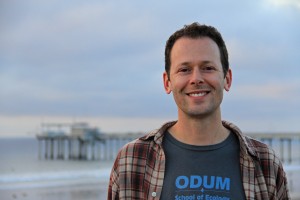
Andrew Mehring, Ph.D.
Postdoctoral Researcher, Scripps Institute of Oceanography, UCSD (USA)
Ecosystem ecology and animal roles in carbon, nutrient, and metal cycling in wetlands and biofilters


Andrew Mehring, Ph.D.Postdoctoral Researcher, Scripps Institute of Oceanography, UCSD (USA)

Anne Simi
Principal Program Officer, Natural Environment, Water and Sustainability Branch, Brisbane City Council (AUS)


Anne SimiPrincipal Program Officer, Natural Environment, Water and Sustainability Branch, Brisbane City Council (AUS)

Antonietta TorreWestern Australia Department of Water (AUS)

Belinda Hatt, Ph.D.
Senior Lecturer, Department of Civil Engineering, Monash University (AUS)
Belinda's expertise is in the area of monitoring and treatment of urban stormwater. She is particularly interested in the long-term fate of pollutants in biofiltration systems, the development of treatment technologies for stormwater harvesting and the application of stormwater harvesting to improve the health of urban streams. Belinda is also committed to encouraging women in science and engineering.


Belinda Hatt, Ph.D.Senior Lecturer, Department of Civil Engineering, Monash University (AUS)

Ben Witten
Postgraduate Student, Earth & Environment, University of Western Australia (AUS)


Ben WittenPostgraduate Student, Earth & Environment, University of Western Australia (AUS)
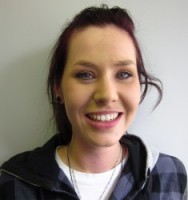
Bonnie Glaister
Postgraduate Student, Department of Civil Engineering, Monash University (AUS)
Bonnie joined Monash University in Febuary 2010. Prior to beginning her current research she completed a Bachelor of Environmental Engineering at Monash University. Bonnie’s work as an environmental engineering consultant included design and implementation of environmental management systems and project specific environmental management plans, risk assessment and environmental auditing. Outside of work and research she has an active interest in community environmental issues, wildlife rescue and rehabilitation and environmental policy.


Bonnie GlaisterPostgraduate Student, Department of Civil Engineering, Monash University (AUS)

Brandon Winfrey, Ph.D.
Postdoctoral Researcher, Environmental Health Sciences, UCLA (USA)
Systems ecology and ecological engineering of treatment wetlands and passive wastewater treatment systems.


Brandon Winfrey, Ph.D.Postdoctoral Researcher, Environmental Health Sciences, UCLA (USA)

Caroline CarvalhoStormwater Integration, Konx City Council (AUS)
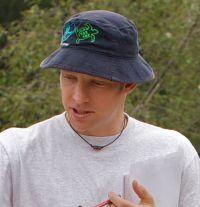
Darren Bos, Ph.D.
Research Assistant, Department of Resource Management & Geography, University of Melbourne (AUS)
Darren is an ecologist with extensive community engagement experience, especially the administration of financial incentives and community grant programs that are aimed at improving environmental condition. In addition to his research, Darren coordinates the knowledge exchange activities of the partnership.


Darren Bos, Ph.D.Research Assistant, Department of Resource Management & Geography, University of Melbourne (AUS)
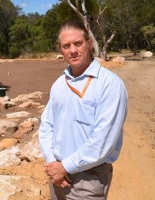
David BeharrellNatural Resources Operations Manager, Hornsby Shire Council (AUS)
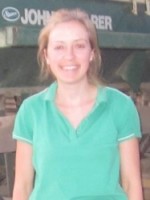
Emily Payne
Department of Civil Engineering, Monash University (AUS)
I am working on a project investigating the use of vegetation to remove nitrogen from stormwater in biofilters. The project aims to identify characteristics of plants favourable to nitrogen removal and use the outcome to guide species selection in biofilters. The removal performance of plants from Victoria and Western Australia are being investigated using a large-scale column experiment. Nitrogen processes will be investigated using isotopic techniques and the project aims to identify interactions between the vegetation, biofilter design and nitrogen removal.


Emily PayneDepartment of Civil Engineering, Monash University (AUS)
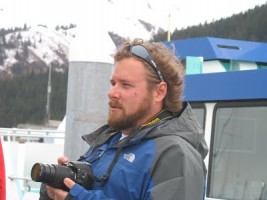
Jeffrey Shragge, Ph.D.
Associate Professor, Department of Earth & Environment, University of Western Australia (AUS)
Acoustic wave propagation, 3D/4D velocity inversion, reverse-time migration (RTM), Wave-equation migration, rock physics, computational geometry and differential meshing.


Jeffrey Shragge, Ph.D.Associate Professor, Department of Earth & Environment, University of Western Australia (AUS)
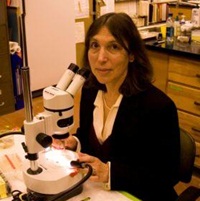
Lisa Levin, Ph.D.
Director CMBC, Scripps Institution of Oceanography, UCSD (USA)
Lisa Levin is Director of CMBC and Distinguished Professor at the Scripps Institution of Oceanography in La Jolla, California. Before moving to Scripps in 1992 she was Assoc. Professor in the Dept. of Marine Earth and Atmospheric Sciences at North Carolina State University in Raleigh. Dr. Levin is a marine ecologist who studies benthic ecosystems in the deep sea and shallow water. Together with her students Dr. Levin has worked with a broad range of taxa, from microbes and microalgae to invertebrates and fishes. Her recent research has emphasized 3 major themes: (1) the structure, function and vulnerability of continental margin ecosystems, particularly those subject to oxygen and sulfide stress; (2) wetland biotic interactions as they mediate marsh function, invasion and restoration; and (3) larval ecology of coastal marine populations with emphasis on connectivity and response to ocean acidification and deoxygenation. The deep ocean covers over half of the planet but most of it is less well known than the surface of the moon. Dr. Levin’s research has been conducted over the past 3 decades on the margins of the Pacific, Indian and Atlantic Oceans using ships, submersibles and remotely operated vehicles (ROVs) to sample and conduct experiments. She has participated in over 30 oceanographic expeditions around the world and served as Chief Scientist on 12 of these. She is the author or co-author of more than 160 scientific publications. Dr. Levin has served as North American editor of the journal Marine Ecology, as founding editorial board member of the Annual Reviews of Marine Science, as past contributing editor for Limnology and Oceanography and Marine Ecology Progress Series, and has edited 5 special volumes on aspects of deep-sea biodiversity.


Lisa Levin, Ph.D.Director CMBC, Scripps Institution of Oceanography, UCSD (USA)
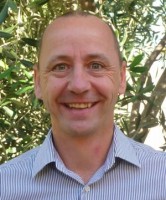
Matthias Leopold, Ph.D.
Lecturer, School of Earth & Environment, University of Western Australia (AUS)
Matthias Leopold is a soil geomorphologist focussing on soils as geoarchives. Frequently used methods of his studies include soil and geomorphic mapping, shallow geophysics, various laboratory methods such as XRD, XRF and others. He is based at the School of Earth &amp; Environment within the Soil Science.Matthias integrates knowledge from pedology and geoscience to study and to understand near surface processes at various scales and environments. Thus, he develops 2D and 3D subsurface models using geophysical methods, to characterise vertical and horizontal differences in the upper meters including soils. Portraying the complexity of the subsurface, recently known in science as the“critical zone”, allows statements about possible rooting depths, hydrological flowpaths, material composition, thickness variations of soil horizons and geomorphic layers – information highly wanted by agriculture, forestry and engineering. Adding numerical dating techniques such as OSL and radiocarbon towards stratigraphic sections, allows developing chronostratigraphic units in order to describe past landscape evolution - valuable knowledge for nowadays environmental development concepts.


Matthias Leopold, Ph.D.Lecturer, School of Earth & Environment, University of Western Australia (AUS)
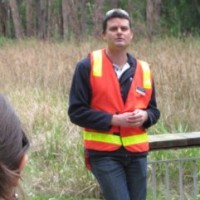
Michael GodfreyStormwater Regional Coordinator, Melbourne Water (AUS)

Olaf (Jay) Jonasson
Ku-ring-gai Council (AUS)
Jay is an environmental engineer with a focus on Water Sensitive Urban Design (WSUD) currently working for Ku-ring-gai Council in Sydney. After working for a private consulting company focusing on WSUD and drainage, Jay moved to local government where, as lead environmental engineer, he had the opportunity to follow projects through their whole life cycle. Jay has worked on a number of award winning projects and is widely published and recognised in the area of WSUD. He is the lead engineer on all Council’s WSUD projects and has been responsible for the design of stormwater harvesting systems for a number of Council owned sports fields. Jay has also delivered a number of sewer mining and leachate reuse projects and developed some innovative raingarden and bioretention designs. Jay is actively conducting research into the planning and performance of these water reuse systems.
<img src="http://water-pire.uci.edu/wp-content/uploads/2015/02/Flag_of_Australia_converted.svg_-e1423690945748.png" alt="Flag_of_Australia_(converted).svg" width="400" height="200" class="aligncenter size-full wp-image-4091" />

Olaf (Jay) JonassonKu-ring-gai Council (AUS)

Paul TathamCity of Sydney (AUS)
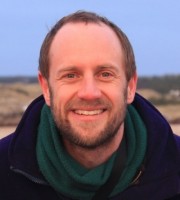
Perran Cook, Ph.D.
Lecturer, School of Chemistry, Monash University (AUS)
My research focuses on the sources, cycling and fate of carbon nitrogen and phosphorus in aquatic environments, and in particular their role in eutrophication in coastal environments. To understand how these elements move and cycle through the environment I combine a range of approaches including standard wet chemical methods, the eddy correlation technique, planar optodes, flumes, stable isotopes and modelling.
<img src="http://water-pire.uci.edu/wp-content/uploads/2015/02/Flag_of_Australia_converted.svg_-e1423690945748.png" alt="Flag_of_Australia_(converted).svg" width="400" height="200" class="aligncenter size-full wp-image-4091" />

Perran Cook, Ph.D.Lecturer, School of Chemistry, Monash University (AUS)
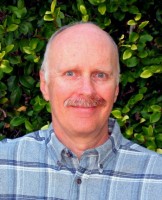
Richard Ambrose, Ph.D.
Professor, Environmental Health Sciences, UCLA (USA)
Richard F. Ambrose is Professor in the Department of Environmental Health Sciences at UCLA. He received his B.S. in Biological Sciences from University of California, Irvine and his Ph.D. in Marine Ecology from University of California, Los Angeles. After conducting postdoctoral research at Simon Fraser University in Vancouver, British Columbia, he spent seven years at the Marine Science Institute at University of California, Santa Barbara before returning to UCLA in 1992. Professor Ambrose is a member of UCLA’s Institute of the Environment. He teaches graduate courses covering environmental assessment, restoration and conservation ecology, and effects of climate change. Professor Ambrose serves on a variety of different advisory boards and committees. He chairs the Scientific Advisory Panel of the California Coastal Commission overseeing a large mitigation project, and the Technical Advisory Committee for the Santa Monica Bay Restoration Commission (SMBRC), and serves on the U.S. Army Corps of Engineers' Environmental Advisory Board (EAB), the California Ocean Protection Council's Science Advisory Team, the Southern California Wetland Recovery Project’s Science Advisory Panel, and the SMBRC Marine Resources Advisory Committee. He has provided advice about environmental restoration issues to a wide variety of government and private organizations, including the National Oceanic and Atmospheric Administration, California State Water Resources Control Board, California Coastal Commission, California State Lands Commission, California Coastal Conservancy, California Department of Transportation, City of Malibu, Pacific Gas and Electric, Aspen Environmental Group and Geosyntec Consultants.


Richard Ambrose, Ph.D.Professor, Environmental Health Sciences, UCLA (USA)
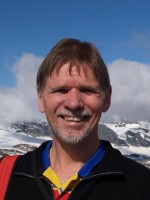
Richard Williamson
Technical Assistant, Department of Civil Engineering, Monash University (AUS)
After studying electrical engineering Richard taught senior level physics, mathematics and outdoor education for several years. He resumed his university studies and completed postgraduate qualifications in outdoor education, environmental science, and mathematics. His educational responsibilities also included project management for outdoor education activities, occupational health and safety, teacher and student management, teacher training, student leadership and counselling.
In both his professional life and in his involvement in private projects, Richard has developed an enthusiastic interest in problem solving. This expertise is regularly drawn upon in his technical role in the Centre and he enjoys the stimulating working environment at the Civil Engineering Department – a wonderfully diverse group of people who are passionate and focussed about water conservation and purification.


Richard WilliamsonTechnical Assistant, Department of Civil Engineering, Monash University (AUS)
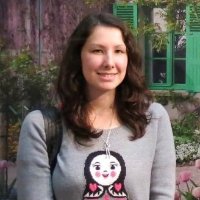
Stephanie Watts-Williams, Ph.D.Department of Civil Engineering, Monash University (AUS)
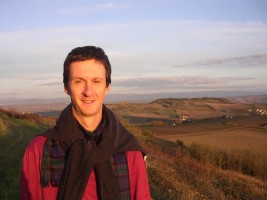
Tim Fletcher, Ph.D.
Adjunct Professor, Resource Management and Geography, University of Melbourne (AUS)
Tim Fletcher has expertise in stormwater quality, treatment and impacts, having written over 250 publications on the topic. His research focus has included modelling stormwater flows, quality and the performance of novel stormwater treatment and harvesting systems. He has been involved in a range of green infrastructure such as biofiltration, infiltration and green roofs. Tim was the Technology Project Leader in the Facility for Advancing Water Biofiltration (FAWB) and formerly Director of the Institute for Sustainable Water Resources at Monash University. He was also an invited professor at the National Institute of Applied Sciences in Lyon (France). Tim was one of the leaders of the team that developed the Model for Urban Stormwater Improvement Conceptualisation (MUSIC) and co-leads, with Assoc. Prof. Chris Walsh the Little Stringybark Creek project - a world-first attempt at catchment-scale retrofit of WSUD (with the aim of restoring the ecological health of the creek). Tim has also been involved in the design and monitoring of several large-scale pilot green infrastructure projects in both Australia and France. From May 2011, Tim has been an ARC Future Fellow and Professor of Urban Ecohydrology, based at the University of Melbourne.
<img src="http://water-pire.uci.edu/wp-content/uploads/2015/02/Flag_of_Australia_converted.svg_-e1423690945748.png" alt="Flag_of_Australia_(converted).svg" width="400" height="200" class="aligncenter size-full wp-image-4091" />

Tim Fletcher, Ph.D.Adjunct Professor, Resource Management and Geography, University of Melbourne (AUS)
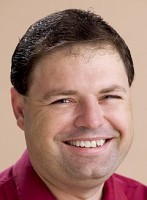
Tony Weber
Visiting Fellow, Integrated Catchment Assessment and Management Unit, Australian National University (AUS)
Catchment and hydrologic modelling, water quality modelling and monitoring, water sensitive urban design, integrated urban water management, groundwater/surface water interactions


Tony WeberVisiting Fellow, Integrated Catchment Assessment and Management Unit, Australian National University (AUS)
| Natural Treatment System Risks: Public Health, GHG Emissions |
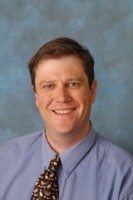
Andrew Hamilton, Ph.D.
Lecturer, School of Land and Environment, University of Melbourne (AUS)
Andrew was a research scientist with the Victorian Department of Primary Industries (DPI) for around 11 years. Most of this research with the DPI was in the fields of entomology, especially sampling theory and practice, and wastewater reuse for horticultural irrigation. In 2005 Andrew and his colleagues were awarded the Daniel McAlpine Outstanding Achievement Award in recognition of their work on applied aspects of sampling, and in particular, the development of sampling plans for diamondback moth, a significant pest of brassicaceous crops. In 2005 Andrew joined Deakin University to work on an ARC-funded project on mathematical risk assessment modelling for irrigation of horticultural crops with reclaimed water. He was primarily interested in risks to human health, but also modelled environmental and agricultural sustainability risks. Andrew completed a PhD on the ecology of waterbirds at the Werribee sewage farm. In short, he loves sewage! In 2007 Andrew joined the University of Melbourne, School of Resource Management, as a lecturer. He lectures in sustainable horticultural management (particularly irrigation and integrated pest management) and continues research on sampling protocols for horticultural pests, wastewater irrigation and waterbird conservation. Andrew aspires to be a polymath but someone needs to tell him he's dreaming!!


Andrew Hamilton, Ph.D.Lecturer, School of Land and Environment, University of Melbourne (AUS)

Andrew Mehring, Ph.D.
Postdoctoral Researcher, Scripps Institute of Oceanography, UCSD (USA)
Ecosystem ecology and animal roles in carbon, nutrient, and metal cycling in wetlands and biofilters


Andrew Mehring, Ph.D.Postdoctoral Researcher, Scripps Institute of Oceanography, UCSD (USA)

Keah-Ying LimGraduate Student, Civil & Environmental Engineering, UCI (USA)
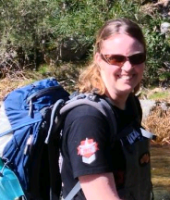
Kerrie BrownMonash University (AUS)

Keryn RobertsMonash University (AUS)

Lisa Levin, Ph.D.
Director CMBC, Scripps Institution of Oceanography, UCSD (USA)
Lisa Levin is Director of CMBC and Distinguished Professor at the Scripps Institution of Oceanography in La Jolla, California. Before moving to Scripps in 1992 she was Assoc. Professor in the Dept. of Marine Earth and Atmospheric Sciences at North Carolina State University in Raleigh. Dr. Levin is a marine ecologist who studies benthic ecosystems in the deep sea and shallow water. Together with her students Dr. Levin has worked with a broad range of taxa, from microbes and microalgae to invertebrates and fishes. Her recent research has emphasized 3 major themes: (1) the structure, function and vulnerability of continental margin ecosystems, particularly those subject to oxygen and sulfide stress; (2) wetland biotic interactions as they mediate marsh function, invasion and restoration; and (3) larval ecology of coastal marine populations with emphasis on connectivity and response to ocean acidification and deoxygenation. The deep ocean covers over half of the planet but most of it is less well known than the surface of the moon. Dr. Levin’s research has been conducted over the past 3 decades on the margins of the Pacific, Indian and Atlantic Oceans using ships, submersibles and remotely operated vehicles (ROVs) to sample and conduct experiments. She has participated in over 30 oceanographic expeditions around the world and served as Chief Scientist on 12 of these. She is the author or co-author of more than 160 scientific publications. Dr. Levin has served as North American editor of the journal Marine Ecology, as founding editorial board member of the Annual Reviews of Marine Science, as past contributing editor for Limnology and Oceanography and Marine Ecology Progress Series, and has edited 5 special volumes on aspects of deep-sea biodiversity.


Lisa Levin, Ph.D.Director CMBC, Scripps Institution of Oceanography, UCSD (USA)

Perran Cook, Ph.D.
Lecturer, School of Chemistry, Monash University (AUS)
My research focuses on the sources, cycling and fate of carbon nitrogen and phosphorus in aquatic environments, and in particular their role in eutrophication in coastal environments. To understand how these elements move and cycle through the environment I combine a range of approaches including standard wet chemical methods, the eddy correlation technique, planar optodes, flumes, stable isotopes and modelling.
<img src="http://water-pire.uci.edu/wp-content/uploads/2015/02/Flag_of_Australia_converted.svg_-e1423690945748.png" alt="Flag_of_Australia_(converted).svg" width="400" height="200" class="aligncenter size-full wp-image-4091" />

Perran Cook, Ph.D.Lecturer, School of Chemistry, Monash University (AUS)

Sunny Jiang, Ph.D.
Civil and Environmental Engineering, UCI (USA)
Dr. Jiang’s research group focuses on applied and environmental microbiology. Research projects in her lab include investigation of seawater desalination biofouling, deep subsurface sludge disposal and energy regeneration, microbial water quality and microbial ecology of harmful algal blooms. Please see Jiang’s laboratory webpage for additional information.


Sunny Jiang, Ph.D.Civil and Environmental Engineering, UCI (USA)
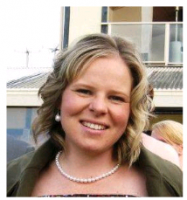
Vera EateMonash University (AUS)
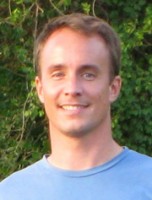
Victor Evrard, Ph.D.Research Fellow, School of Chemistry, Monash University (AUS)
| Natural Treatment System Treatment: Human Pathogens, Pesticides |
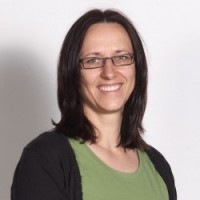
Ana Deletic, Ph.D.
Director of Monash Water for Liveability, Monash University (AUS)
Ana Deletic is a Professor of Civil (Water) Engineering, Associate Dean of Research (Engineering) and a Director of Monash Water for Liveability at Clayton campus, Monash University.
Ana became involved in urban water research in the 90s, studying stormwater management in Yugoslavia and Sweden. She completed her PhD at The University of Aberdeen in Scotland, where she lectured between 1995 and 2003. Since then she's worked at Monash University, forming a world renowned research group in stormwater management, conducting research on technologies that employ sustainable, innovative ways for treating urban runoff for stream protection and human consumption. Biofiltration developed under her leadership was implemented across Australia and exported to Singapore and Israel. Ana led development of MUSIC V4, the industry-recognised tool for design of WSUD systems. She co-leads Australian involvement in the EU FP7 project PREPARED, that aims to adapt urban water systems to climate change. As co-director of the Centre for Water Sensitive Cities now renamed Monash Water for Liveability, she helped attain the Commonwealth and industry funding to establish CRC for Water Sensitive Cities (approx. $57 million), managing the CRC Melbourne Node with over 20 industry partners and 70 researchers from Victoria, South Australia and Tasmania. Ana has published over 240 journal articles, conference papers and book chapters and supervised around 27 PhD students.
In 2011 she became a Fellow of the Australian Academy of Technological Sciences and Engineering (ATSE) and is now Deputy Chair of the ATSEs Water Forum Committee. She regularly consults with government at local, state and federal levels; e.g. National Recycled Water Regulators Forum, chairing the Technical Review Committee of Best Practice Environmental Management Guidelines (BPEM) and, until recently, serving on the Urban Water Stakeholder Reference Panel of SEWPC (an Australian Government Dept). She is Fellow of Engineers Australia, and won the 2008 Deans Award for Research. She has served as Associate Editor of Water Research and Water Science and Technology, two of the top international journals in her field; also on the Joint Committee on Urban Drainage (IWA/IAHR) and as expert adviser to the Pennine Water Group in the UK. A highly sought-after keynote speaker, Ana has chaired, led delegations to, or presented keynotes in, numerous international conferences and appeared in media documentaries or interviews.
In 2012, Parliament awarded Ana the Victoria Prize for Science and Innovation for Physical Sciences, which is given to only one researcher in Victoria each year. She is the first woman to receive this award in its 15-year history.


Ana Deletic, Ph.D.Director of Monash Water for Liveability, Monash University (AUS)
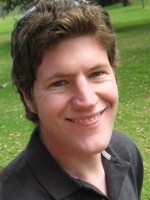
David McCarthy, Ph.D.
Senior Lecturer, Department of Civil Engineering, Monash University (AUS)
Modelling, monitoring and treatment of urban stormwater


David McCarthy, Ph.D.Senior Lecturer, Department of Civil Engineering, Monash University (AUS)

Eric Huang
Graduate Student, Civil & Environmental Engineering, UCI (USA)
Eric Huang is a new Ph.D student in the lab. He recently received his masters degree in Environmental Engineering from Zhejiang University, China. His previous research focused on using compost to suppress Fusarium oxysprum, a soil-borne fungal pathogen that causes wilting of many plants. His growing passion in environmental microbiology fueled his desire to continue his Ph.D. study in Environmental Engineering.


Eric HuangGraduate Student, Civil & Environmental Engineering, UCI (USA)
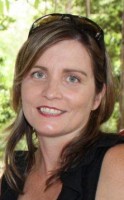
Jane-Louise Lampard
Ph.D. Candidate, Smart Water Research Centre, Griffith University (AUS)
Jane-Louise is a PhD candidate at Smart Water Research Centre, Griffith University, investigating human health risks associated with pathogens in stormwater harvested for reuse. She first became interested in human health risks associated with water while undertaking her Bachelor of Business (Management)/Bachelor of Science (Public Health) at the University of the Sunshine Coast. During her honours research she conducted a screening level risk assessment of human health hazards associated with constructed lakes in a peri-urban catchment on the Sunshine Coast. Prior to commencing her PhD, Jane-Louise also worked as a research assistant at Smart Water Research Centre, examining risks associated with recycled wastewater.
Jane-Louise’s PhD (Health Risk Assessment of Pathogens in Stormwater Harvested for Reuse) is linked to Project P5 (Risks and Health), within the Cities as Water Supply Catchments Program.


Jane-Louise LampardPh.D. Candidate, Smart Water Research Centre, Griffith University (AUS)
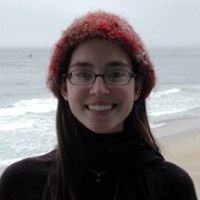
Megan Rippy, Ph.D.
Postdoctoral Researcher, Civil & Environmental Engineering, UCI (USA)
Fate and transport modeling; pathogen removal in biofilters


Megan Rippy, Ph.D.Postdoctoral Researcher, Civil & Environmental Engineering, UCI (USA)

Sunny Jiang, Ph.D.
Civil and Environmental Engineering, UCI (USA)
Dr. Jiang’s research group focuses on applied and environmental microbiology. Research projects in her lab include investigation of seawater desalination biofouling, deep subsurface sludge disposal and energy regeneration, microbial water quality and microbial ecology of harmful algal blooms. Please see Jiang’s laboratory webpage for additional information.


Sunny Jiang, Ph.D.Civil and Environmental Engineering, UCI (USA)

William Cooper, Ph.D.
Professor, Civil and Environmental Engineering, UCI (USA)
His major research interests are sunlight-mediated photochemical reactions in natural waters and free radical chemistry of aqueous solutions. Most recently, he has been involved in the application of ozonation for ballast water treatment at full-scale on oil tankers.
As a civilian, he ran the water reuse program for the U.S. Army at Ft. Detrick and also helped pioneer the first annual Water Reuse Symposium in 1979. Additionally, he served as director of the Drinking Water Research Center at Florida International University and as a consultant to the International Atomic Energy Agency and several international cooperative research projects.
Cooper received his doctorate in marine and atmospheric chemistry from the University of Miami in 1987


William Cooper, Ph.D.Professor, Civil and Environmental Engineering, UCI (USA)
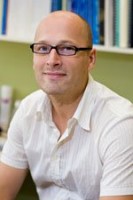
Wolfgang Gernjak, Ph.D.
Adjunct Fellow, Advanced Water Management Center, University of Queensland (AUS)
Wolfgang is the program leader of the Water Recycling Research Program at the AWMC since 2009, after moving to work at here in 2008. He has successfully delivered in collaboration with his fellow colleagues on numerous research and consulting projects in the area of water recycling, stormwater and drinking water.
Before his arrival in Australia, Wolfgang worked for 6 years on his PhD, and then as a research fellow in the ’Environmental Applications of Solar Energy’ group at the Spanish CIEMAT-Plataforma Solar de Almería.
His core skills lie in the area of chemical oxidative processes, membrane processes and other filtration processes, in particular with regards to contaminant removal and process optimization. Wolfgang has published over 50 peer-reviewed publications and has an H-index of 20.


Wolfgang Gernjak, Ph.D.Adjunct Fellow, Advanced Water Management Center, University of Queensland (AUS)

Yiping Cao, Ph.D.
Senior Microbiologist, SCCWRP (USA)
Yiping Cao (phonetic spelling "Tsao") is a senior microbiologist who specializes in molecular techniques and microbial ecological tools. She received her B.S. degree in Environmental Chemistry, in 1998, from Nanjing University, P.R. China, her M.A. degree in Applied Statistics, in 2004, and her Ph.D. degree in Environmental Science and Management, in 2006, both from University of California, Santa Barbara. Dr. Cao joined SCCWRP in February 2007. Her present research efforts focus on microbial source tracking and the development and implementation of rapid indicator methods for microbial contamination in coastal waters.


Yiping Cao, Ph.D.Senior Microbiologist, SCCWRP (USA)
| Urban Water Systems: Demand/Supply Modeling |

Ali Mehran
Graduate Student, Civil & Environmental Engineering, UCI (USA)
Ali Mehran's background is in hydrology, fluid mechanics, and programming. His first opportunity to work with a multi-disciplinary team was at Tokyo Tech. University in 2008 and later at North Carolina State University in 2010. Ali's current research is focused on development of a new nested multi-scale modeling framework for flood forecasting that assesses climate change impacts on the terrestrial water cycle. Once the modeling framework is developed, the effects of climate change on the water cycle can be recognized.


Ali MehranGraduate Student, Civil & Environmental Engineering, UCI (USA)
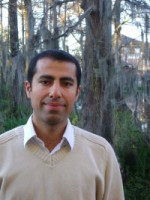
Amir AghaKouchak, Ph.D.
Assistant Professor, Department of Civil and Environmental Engineering, UCI (USA)
Hydrology, climatology, and remote sensing


Amir AghaKouchak, Ph.D.Assistant Professor, Department of Civil and Environmental Engineering, UCI (USA)
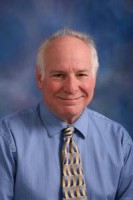
David Feldman, Ph.D.
Chair, Department of Planning, Policy and Design, UCI (USA)
Dr. Feldman specializes in water resources management and policy, global climate change policy, ethics and environmental decisions, adaptive management and sustainable development. His current research is focused on the sources of value conflicts over allocation and distribution of water, and the difficulties in achieving institutional reform to promote equity in water management in the U.S. and elsewhere.


David Feldman, Ph.D.Chair, Department of Planning, Policy and Design, UCI (USA)
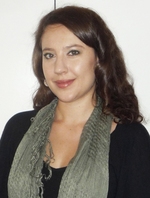
Jakin RavalicoMelbourne Water (AUS)
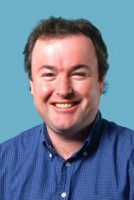
Murray Peel, Ph.D.
Senior Research Fellow, Department of Infrastructure Engineering, Univeristy of Melbourne (AUS)
Dr Murray Peel is a Senior Research Fellow in the Department of Infrastructure Engineering at the University of Melbourne. He has a PhD (Geography) and a BSc (Hons) from the University of Melbourne. His hydroclimatic research interests include understanding differences in inter-annual variability of annual runoff around the world, hydrologic impacts of land use change and potential climate change impacts on inter-annual runoff variability. His research and consulting activities have produced over 70 publications, including 29 articles in international journals and 7 book chapters.
<img src="http://water-pire.uci.edu/wp-content/uploads/2015/02/Flag_of_Australia_converted.svg_-e1423690945748.png" alt="Flag_of_Australia_(converted).svg" width="400" height="200" class="aligncenter size-full wp-image-4091" />

Murray Peel, Ph.D.Senior Research Fellow, Department of Infrastructure Engineering, Univeristy of Melbourne (AUS)
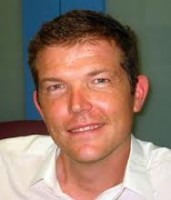
Tim Peterson, Ph.D.
Research Fellow, Department of Infrastructure Engineering, Univeristy of Melbourne (AUS)
Geostatistics (mapping, statistics, water table, aquifer), Hydrological resilience (hydrology, resilience, catchment modelling)
<img src="http://water-pire.uci.edu/wp-content/uploads/2015/02/Flag_of_Australia_converted.svg_-e1423690945748.png" alt="Flag_of_Australia_(converted).svg" width="400" height="200" class="aligncenter size-full wp-image-4091" />

Tim Peterson, Ph.D.Research Fellow, Department of Infrastructure Engineering, Univeristy of Melbourne (AUS)
| Catchment Scale: Flood Risk, Storm Hydrographs, Receiving Water Quality |

Amir AghaKouchak, Ph.D.
Assistant Professor, Department of Civil and Environmental Engineering, UCI (USA)
Hydrology, climatology, and remote sensing


Amir AghaKouchak, Ph.D.Assistant Professor, Department of Civil and Environmental Engineering, UCI (USA)

Asal Askarizadeh
Graduate Student, Civil & Environmental Engineering, UCI (USA)
Asal’s research interest is focused on urban hydrology. She joined the PIRE program in 2012 and currently working in professor Stanley Grant lab. She started her PhD studies with understanding the impact of urbanization on stormwater runoff hydrograph and how Low Impact Development (LID) implementation could return the impaired hydrology to the more natural condition. To this end, she developed a statistical change detection framework to quantify the deviation of post-urbanization stormwater runoff hydrograph. This work inspired her for writing a review paper on how using LID could address the symptoms of urban stream syndrome, which got published in Environmental Science and Technology journal in 2015. Currently, she is working on management of nitrogen export out of urbanized and agricultural watersheds, which is one of the remarkable symptoms of urban stream syndrome.
<img src="http://water-pire.uci.edu/wp-content/uploads/2015/02/06_13_2013_us-flag-e1423775508460.gif" alt="06_13_2013_us-flag" width="379" height="200" class="aligncenter size-full wp-image-4234" />

Asal AskarizadehGraduate Student, Civil & Environmental Engineering, UCI (USA)
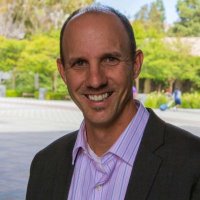
Brett Sanders, Ph.D.
Professor, Department of Civil and Environmental Engineering, UCI (USA)
Hydrodynamics and water quality in rivers, estuaries, and the coastal ocean


Brett Sanders, Ph.D.Professor, Department of Civil and Environmental Engineering, UCI (USA)

Jack SkinnerCity of Newport Beach (USA)
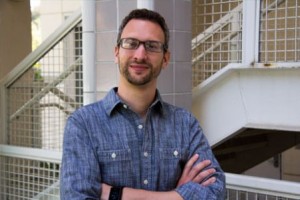
Jochen Schubert, Ph.D.
Assistant Specialist, Civil & Environmental Engineering, UCI (USA)
Jochen (Jo) is a GIS and hydraulic modeling Research Specialist at UC Irvine and Data Manager for the FloodRISE project. He joined the Sanders Lab in 2009 with the objective of studying the effects of fine- resolution geospatial data on predictive skill and computational efficiency of hydraulic models. His aim is to gain a better understanding of the data needs to characterize the complex hydrology of build and natural environments, allowing for advances in flood prediction, flood risk management and watershed sustainability.


Jochen Schubert, Ph.D.Assistant Specialist, Civil & Environmental Engineering, UCI (USA)
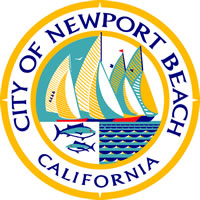
John KappelerCode & Water Quality Enforcement Division Manager, City of Newport Beach (USA)
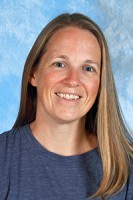
Karen McClaughlin, Ph.D.
Biogeochemist, SCCWRP (USA)
Karen McLaughlin is a biogeochemist specializing in nutrient cycling and source tracking in streams, estuaries, and coastal waters. She received her B.S. in Geosciences from Penn State University in 1999, and her Ph.D. in Geological and Environmental Sciences from Stanford University in 2005. Karen joined SCCWRP in March 2007. Her current research falls into four areas: 1) understanding factors and processes controlling ecosystem response to anthropogenic nutrient loading, 2) monitoring ocean acidification and understanding the local drivers thereof, 3) determination of “natural background” sources and cycling of nutrients via atmospheric deposition, groundwater inputs, assimilation, nitrogen fixation, and denitrification, and 4) development of indicators of eutrophication in estuaries and streams.


Karen McClaughlin, Ph.D.Biogeochemist, SCCWRP (USA)
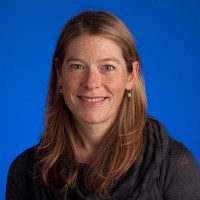
Kristen Davis, Ph.D.
Assistant Professor, Department of Civil and Environmental Engineering, UCI (USA)
Physical, chemical, and ecological process modeling


Kristen Davis, Ph.D.Assistant Professor, Department of Civil and Environmental Engineering, UCI (USA)

Matt Burns
Ph.D. Candidate, Resource Management & Geography, University of Melbourne (AUS)
Matthew joined the Department of Civil Engineering at Monash University as a PhD candidate in 2009. He graduated with a degree in environmental engineering and recently completed post-graduate studies in river health management. Before commencing his PhD research, Matthew worked as a graduate hydrologist for SKM Consulting. This role focussed predominately on a variety of flood hydrology projects.
More info about Matt
Matthew is involved in the Centre for Water Sensitive Cities through his PhD research (The Impacts of Urbanisation on Catchment Hydrology and Opportunities for Stream Health Restoration through Focussed Catchment Retrofit), which links into two different areas:
-the Little Stringybark Creek Project, within the Ecosystem Dynamics Program, and
-Project P4 (Stream Ecology), within the Cities as Water Supply Catchments Program.


Matt BurnsPh.D. Candidate, Resource Management & Geography, University of Melbourne (AUS)

Megan Rippy, Ph.D.
Postdoctoral Researcher, Civil & Environmental Engineering, UCI (USA)
Fate and transport modeling; pathogen removal in biofilters


Megan Rippy, Ph.D.Postdoctoral Researcher, Civil & Environmental Engineering, UCI (USA)
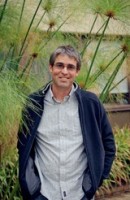
Mike Stewardson, Ph.D.
Senior Lecturer, Department of Infrastructure Engineering, Univeristy of Melbourne (AUS)
Freshwater ecosystem management (environmental flows, river restoration, environmental monitoring), River science (ecohydrology, ecohydraulics, hydromorphology), Water resources (environmental water, water sharing, river basin management)


Mike Stewardson, Ph.D.Senior Lecturer, Department of Infrastructure Engineering, Univeristy of Melbourne (AUS)

Morvarid Azizian
Graduate Student, Civil & Environmental Engineering, UCI (USA)
I am interested in developing models for hyporheic exchange that can assist in the restoration of urban streams, and the design of natural treatment systems such as wetlands and biofilters. This project will link together mass transport theory (Professor Stanley Grant, UCI), direct numerical simulations of turbulent and particle-laden boundary layer flows (Professor Said Elghobashi, UCI), and experimental measurements of hyporheic exchange in laboratory flumes (Professor Mike Stewardson and Australian Research Council Fellow and Professor Ivan Marusic, University of Melbourne).
<img src="http://water-pire.uci.edu/wp-content/uploads/2015/02/06_13_2013_us-flag-e1423775508460.gif" alt="06_13_2013_us-flag" width="379" height="200" class="aligncenter size-full wp-image-4234" />

Morvarid AzizianGraduate Student, Civil & Environmental Engineering, UCI (USA)

Perran Cook, Ph.D.
Lecturer, School of Chemistry, Monash University (AUS)
My research focuses on the sources, cycling and fate of carbon nitrogen and phosphorus in aquatic environments, and in particular their role in eutrophication in coastal environments. To understand how these elements move and cycle through the environment I combine a range of approaches including standard wet chemical methods, the eddy correlation technique, planar optodes, flumes, stable isotopes and modelling.
<img src="http://water-pire.uci.edu/wp-content/uploads/2015/02/Flag_of_Australia_converted.svg_-e1423690945748.png" alt="Flag_of_Australia_(converted).svg" width="400" height="200" class="aligncenter size-full wp-image-4091" />

Perran Cook, Ph.D.Lecturer, School of Chemistry, Monash University (AUS)
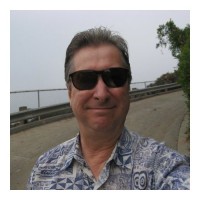
Robert SteinAssistant City Engineer, City of Newport Beach (USA)

Tim Fletcher, Ph.D.
Adjunct Professor, Resource Management and Geography, University of Melbourne (AUS)
Tim Fletcher has expertise in stormwater quality, treatment and impacts, having written over 250 publications on the topic. His research focus has included modelling stormwater flows, quality and the performance of novel stormwater treatment and harvesting systems. He has been involved in a range of green infrastructure such as biofiltration, infiltration and green roofs. Tim was the Technology Project Leader in the Facility for Advancing Water Biofiltration (FAWB) and formerly Director of the Institute for Sustainable Water Resources at Monash University. He was also an invited professor at the National Institute of Applied Sciences in Lyon (France). Tim was one of the leaders of the team that developed the Model for Urban Stormwater Improvement Conceptualisation (MUSIC) and co-leads, with Assoc. Prof. Chris Walsh the Little Stringybark Creek project - a world-first attempt at catchment-scale retrofit of WSUD (with the aim of restoring the ecological health of the creek). Tim has also been involved in the design and monitoring of several large-scale pilot green infrastructure projects in both Australia and France. From May 2011, Tim has been an ARC Future Fellow and Professor of Urban Ecohydrology, based at the University of Melbourne.
<img src="http://water-pire.uci.edu/wp-content/uploads/2015/02/Flag_of_Australia_converted.svg_-e1423690945748.png" alt="Flag_of_Australia_(converted).svg" width="400" height="200" class="aligncenter size-full wp-image-4091" />

Tim Fletcher, Ph.D.Adjunct Professor, Resource Management and Geography, University of Melbourne (AUS)
| Policy/Economics: Offsets, Adoption Barriers, Economics |

Andrew Hamilton, Ph.D.
School of Land and Environment, University of Melbourne (AUS)
Wastewater reuse for horticultural irrigation, risk assessment


Andrew Hamilton, Ph.D.School of Land and Environment, University of Melbourne (AUS)
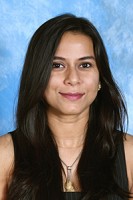
Ashmita Sengupta, Ph.D.
Hydrogeologist, SCCWRP (USA)
Ashmita Sengupta is a hydrogeologist specializing in the study of contaminant fate and transport in ground and surface water. She received her M.S. and Ph.D. from the University of Massachusetts, Amherst, and her B.E. from Delhi College of Engineering. She joined SCCWRP in April 2010. Her primary research focuses on applying modeling techniques to evaluate and improve the efficacy and impact of IWRM strategies. She also evaluates various stress responses (e.g., shift in flow ecology or benthic communities) in receiving waterbodies due to watershed activities.


Ashmita Sengupta, Ph.D.Hydrogeologist, SCCWRP (USA)
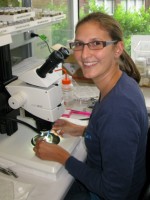
Claudette Kellar, Ph.D.
Research Fellow, Freshwater Program, CAPIM (AUS)
At CAPIM my current role is as a Research Fellow in the Freshwater Program. My research focus is to describe the impact of specific pollutants on aquatic macroinvertebrates using existing methodologies and to develop novel bioindicators for assessing aquatic health in freshwater invertebrate species to assist in assessing stream health.


Claudette Kellar, Ph.D.Research Fellow, Freshwater Program, CAPIM (AUS)

David Feldman, Ph.D.
Chair, Department of Planning, Policy and Design, UCI (USA)
Dr. Feldman specializes in water resources management and policy, global climate change policy, ethics and environmental decisions, adaptive management and sustainable development. His current research is focused on the sources of value conflicts over allocation and distribution of water, and the difficulties in achieving institutional reform to promote equity in water management in the U.S. and elsewhere.


David Feldman, Ph.D.Chair, Department of Planning, Policy and Design, UCI (USA)
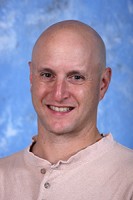
Eric Stein, Ph.D.
Head of Biology Department, SCCWRP
Dr. Eric Stein is head of SCCWRP's Biology department, where he oversees a variety of projects related to in-stream and coastal water quality, hydromodification, development of biological indices, and assessment of wetlands and other aquatic resources. Dr. Stein received his Bachelors degree in Biology in 1987, Masters degree in Science Education in 1988, and Doctorate degree in Environmental Science and Engineering in 1995, all from UCLA.


Eric Stein, Ph.D.Head of Biology Department, SCCWRP
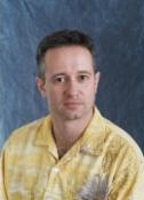
Jean-Daniel Saphores, Ph.D.
Professor, Civil and Environmental Engineering, UCI (USA)
Environmental and resource economics; environmental systems


Jean-Daniel Saphores, Ph.D.Professor, Civil and Environmental Engineering, UCI (USA)
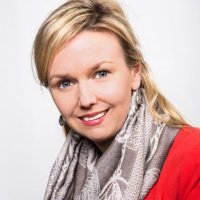
Kate BergRenewable Resources Manager, Western Water (AUS)

Kimberly DuongGraduate Student, Civil & Environmental Engineering, UCI (USA)
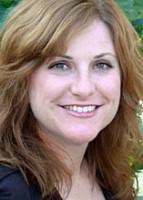
Lindsey StuvickWater Efficiency Analyst, IRWD (USA)
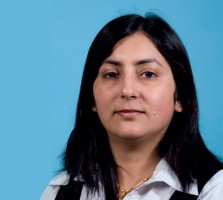
Meenakshi Arora, Ph.D.
Department of Infrastructure Engineering, Univeristy of Melbourne (AUS)
Expertise: Land and groundwater remediation,Contaminant transport modelling, Water resource management


Meenakshi Arora, Ph.D.Department of Infrastructure Engineering, Univeristy of Melbourne (AUS)
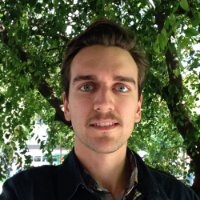
Nathan DelbridgeResearcher, Roberts Evaluation (AUS)
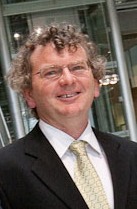
Vincent Pettigrove, Ph.D.
Chief Executive Officer, CAPIM (AUS)
A/Prof. Pettigrove is the Chief Executive Officer of the CAPIM and Principal Research Fellow at The University of Melbourne, Australia. He has been a Principal Ecologist at Melbourne Water with over 30 years experience in the Victorian water industry and aquatic research. In addition he is an adjunct Associate Professor at Victoria University and Senior Associate at RMIT University. He has designed and conducted a broad range of research and monitoring programs that help catchment management agencies understand what are the priority issues impacting the health of aquatic ecosystems. Research areas include freshwater sediment toxicity, exotic fish management, pesticide pollution, endocrine disrupting chemicals, macroinvertebrates, and the use of fish and other biota as indicators of sediment pollution. A/Prof. Pettigrove has produced over 45 published journal articles and peer reviewed conference papers.

Vincent Pettigrove, Ph.D.Chief Executive Officer, CAPIM (AUS)
| Staff |

Beatrice MeiSr. Contract and Grant Analyst, UCI (USA)
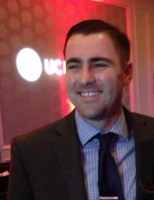
James BeamWater-PIRE Administrator, UCI (USA)

Jessica Martone, Ph.D.
Senior Evaluator, SmartStart Evaluation and Research (USA)
Dr. Martone is a Senior Evaluator at SmartStart Evaluation and Research. She received her PhD and her MSW from Loyola University Chicago’s School of Social Work. Jessica was a research fellow and is currently a research affiliate for the Institute for Migration and International Social Work. Jessica has been involved with immigration and education focused research projects. Prior to SmartStart, Jessica was an adjunct faculty member at Loyola University Chicago teaching undergraduate and graduate level social work courses. In addition she worked as a consultant conducting research and evaluation.


Jessica Martone, Ph.D.Senior Evaluator, SmartStart Evaluation and Research (USA)

Lisa Kohne, Ed.D.
Senior Researcher, SmartStart Evaluation and Research (USA)
Dr. Kohne received her doctoral degree in Educational Leadership from the University of California, Irvine/Los Angeles with a specialization in program analysis and evaluation. She is the founder of SmartStart and has conducted numerous formative and summative evaluations and impact studies involving K-12 students and adult participants using both quantitative and qualitative methods. Dr. Kohne has served as a Board of Institutional Review member for Cal State-Channel Islands and Cal State-Bakersfield. She also holds a bachelor’s degree in biochemical sciences from Hope College in Holland, MI and a master’s degree in educational administration from Cal State-Fullerton. Prior to founding SmartStart, Dr. Kohne served as a high school science teacher and school site administrator in the Garden Grove Unified School district for 17 years and an adjunct faculty member at University of California, Irvine.


Lisa Kohne, Ed.D.Senior Researcher, SmartStart Evaluation and Research (USA)

Lorrie AguirreDepartment Manager, Civil & Environmental Engineering, UCI (USA)

Mariana Schmalstig
Evaluation Associate, SmartStart Evaluation and Research (USA)
Ms. Schmalstig earned her M.A. in Applied Developmental Psychology and Evaluation from Claremont Graduate University and her B.A. in Psychology with a minor in Spanish from Pitzer College. Her evaluation interests are focused on educational projects with a specific emphasis on assessing programs that help underserved students get to and through college. Her previous work experiences include managing research studies related to teaching and learning as well as assisting on various types of evaluations, including capacity building.


